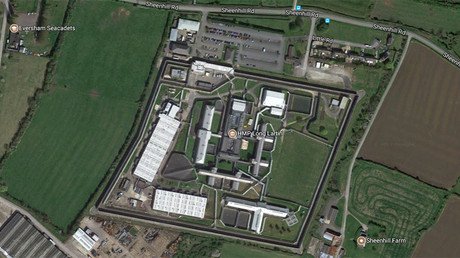Squalid conditions in UK prisons ‘a humanitarian crisis,’ whistleblower tells RT (PHOTOS)
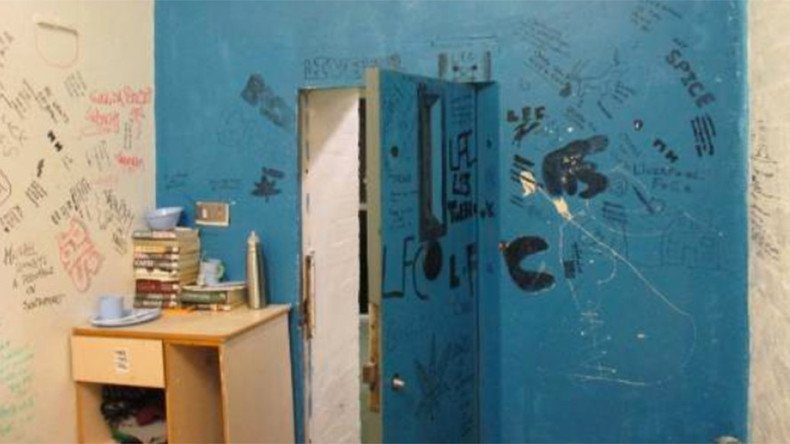
Severe overcrowding, squalid conditions and lax security in England’s jails constitute a “national crisis,” a prison whistleblower has told RT, as photographs released from inside reveal vermin-infested cells, blood-stained walls and toilets being used as dining chairs.
Faith Spear was sacked from her role as chairman of the Independent Monitoring Board (IMB) at Hollesley Bay prison in Suffolk last year, after voicing her concerns about the state of Britain’s jails.
Despite “dirty tactics” allegedly employed by the Ministry of Justice to stop her from speaking out, the criminologist told RT she will continue to do so until changes are made.
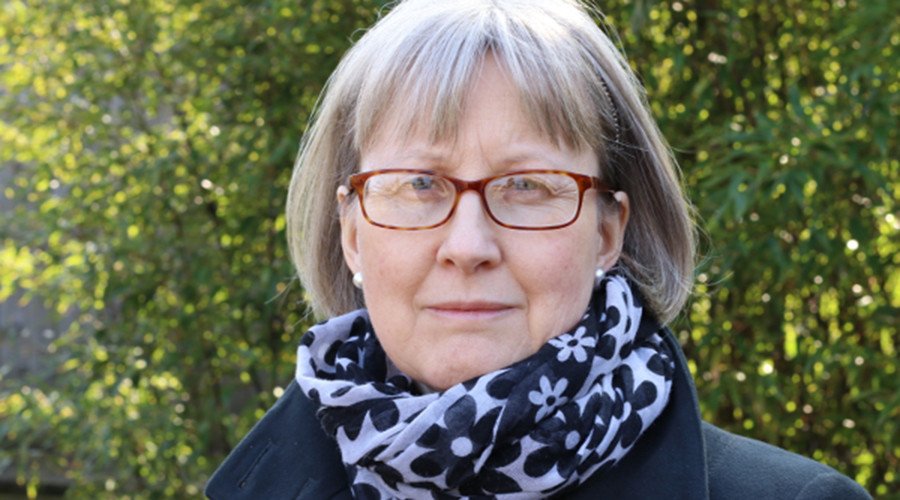
Spear warned that the number of people dying in prisons, as well as incidents of self-harm, violence and drug use have risen to record highs. Overcrowding and critical understaffing have exacerbated the problem, she said.
“Our prisons are in crisis. Sentencing guidelines have placed more people in prisons for longer periods of time and have inflated the prison population to record numbers,” explained Spear.
“This has given rise to overcrowding and - together with understaffing and the emergence of psychoactive substances - prisons have become places of deprivation on a record scale.
“It’s a toxic combination,” she added.
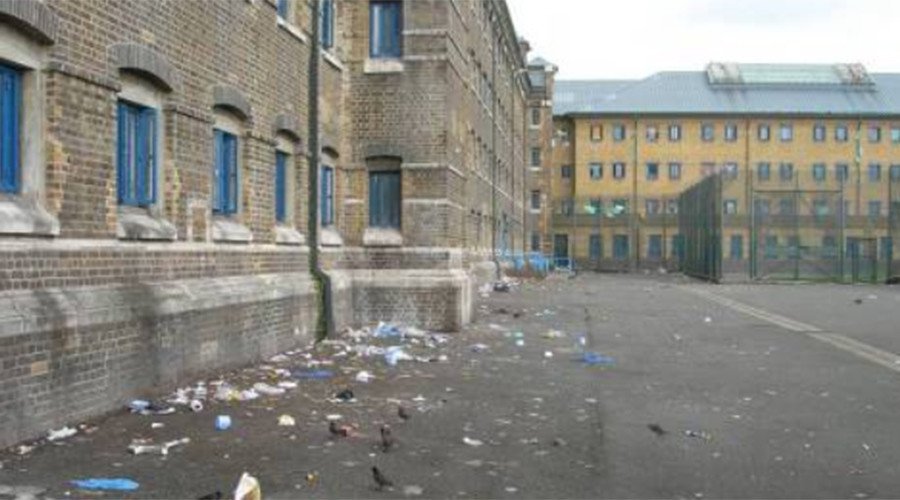
A report by Her Majesty’s Inspectorate of Prisons released this week reveals that almost 21,000 of the total 85,000 prison population are held in overcrowded conditions.
Some 31 percent of prisoners in local jails report being locked up for more than 22 hours a day, with some not being let out for 27 hours at a time. Most multi-occupancy cells did not meet the European Committee for the Prevention of Torture and Inhumane or Degrading Treatment or Punishment (CPT) standard of four-square meters per person.
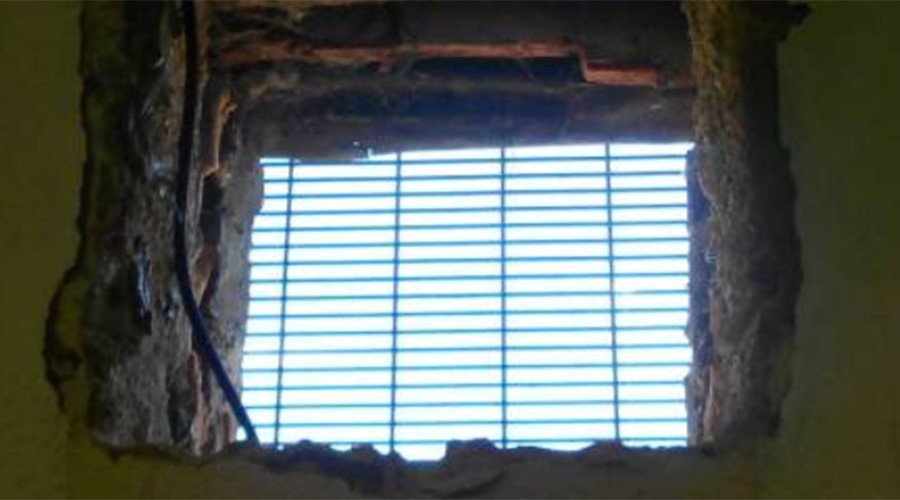
The report reveals that conditions are so cramped and ventilation so bad that inmates are having their human rights breached. Many prisoners have to defecate in lidless toilets just feet away from their cellmates, separated by nothing but a curtain.
The report contains a series of disturbing images, including electric cables dangling from the roof of shower cubicles, windows broken for ventilation, toilets used as dining chairs, and bloodied handprints on the walls.
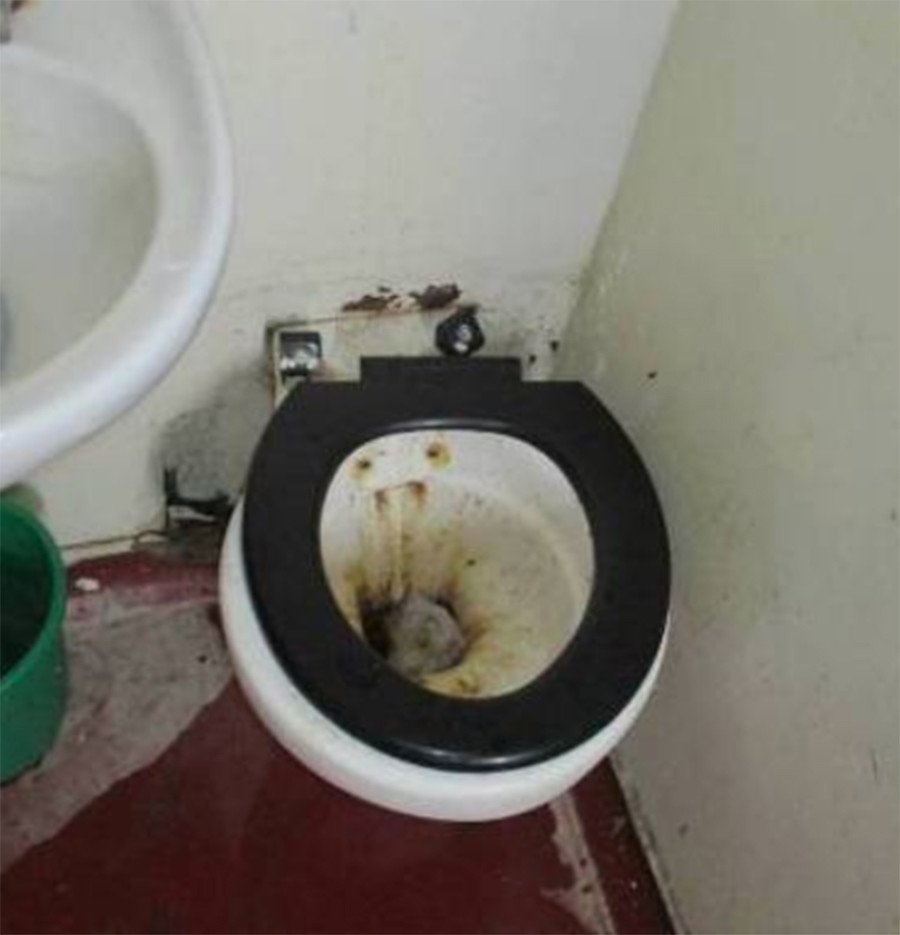
“No wonder why people come out of prison worse than when they went in,” Spear told RT.
“Punishment, according to the government, is taking away your liberty. But once you are in prison you are punished continually by the regime. When you are released you are still punished because you’ve got a criminal record, who wants to employ you, you have probably lost your home as well as contact with friends and family.
“Once you get into the system, that’s basically it for life,” she said.
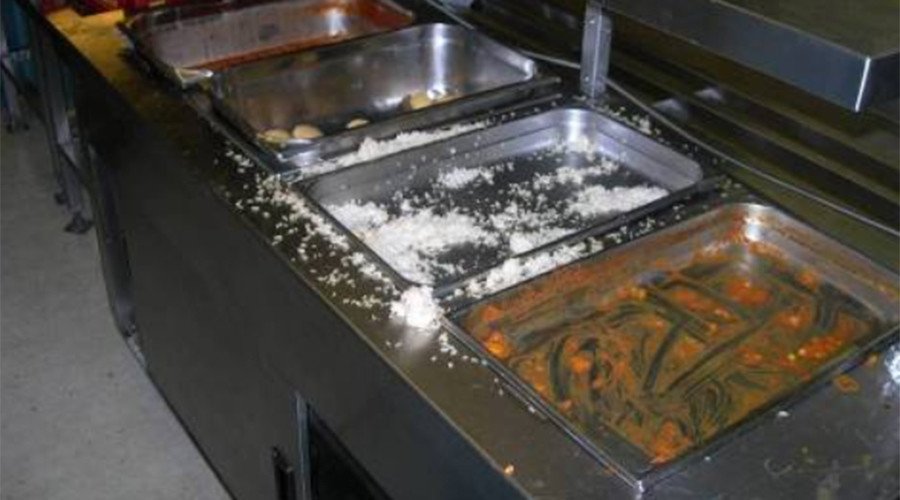
Over the past 25 years, Britain’s prison population has almost doubled to 86,337 – making it the largest in Western Europe. Its incarceration rate, at 148.3 prisoners per 100,000 population, remains higher than that of Spain (137.9), France (98.3), Italy (86.4) and Germany (77.4), according to the Council of Europe’s annual penal statistics.
Between May and August, the prison population jumped by 1,200. It is now about 1,000 below the “useable operational capacity.”
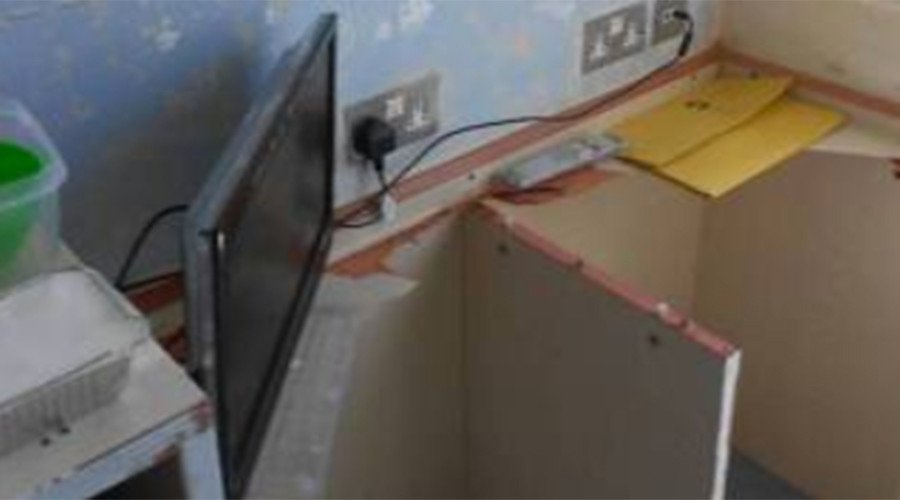
Head of the Prison and Probation Service Michael Spurr announced this week that government plans to close old and “dilapidated” prisons have been suspended as prison numbers continue to soar.
Speaking at the Prison Governors’ Association Conference on Wednesday, he said no closures were planned for the next five years but plans to provide 10,000 new prison places were still on track.
He said that officials were “still trying to understand” the reasons for the unanticipated rise but thought it might have been due to a number of major court cases finishing and changes to police bail arrangements.
“It’s crazy to think building more prisons is the answer,” Spear said.
“You only have to look at the state of the prisons now - they’re overcrowded, filthy, lack of staff, lack of purposeful activity and for those inside, lack of hope. If the Ministry of Justice hasn’t got it right with the prisons they’ve got now, why build more? There must be a better solution.”
Spear has also raised concerns over security standards at major prisons. She believes mobile phones and drugs are getting into jails through “staff corruption, officers turning a blind eye, and staff and visitors not being searched.”
An RT investigation last month found inmates at Wandsworth prison were smoking drugs, making hundreds of pounds a day in jail, and filming themselves on smartphones from their cells to brag about how easy it is to hide contraband from those in charge of the prison.
“Wandsworth is one of the most dangerous and overcrowded prisons in the country, and yet I went last summer and was not searched at all,” Spear said.
“In fact, I was working in one prison for four years and I wasn’t searched once. When I went to Oakwood Prison a few weeks ago, I wasn’t searched at all.”
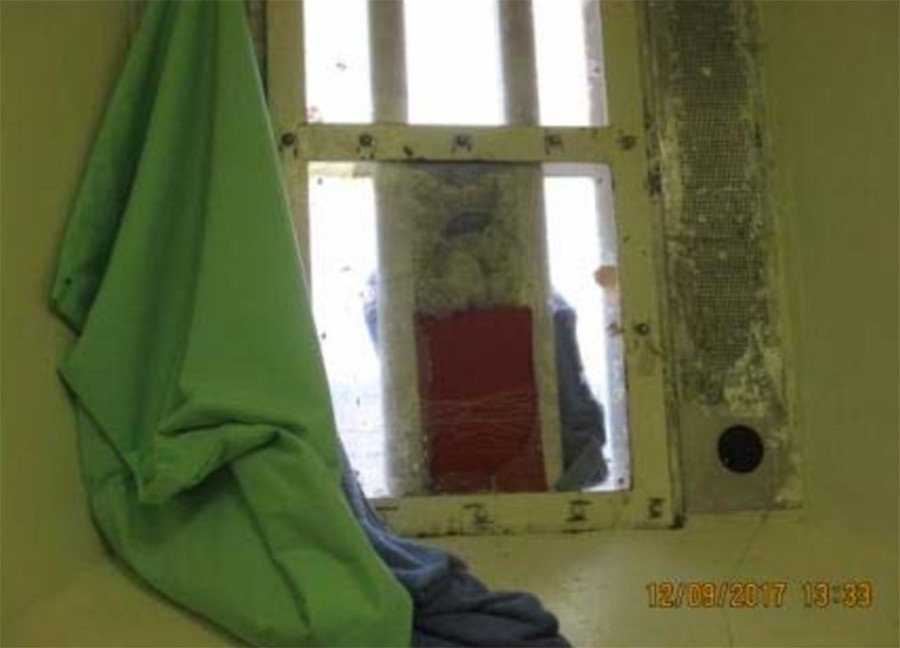
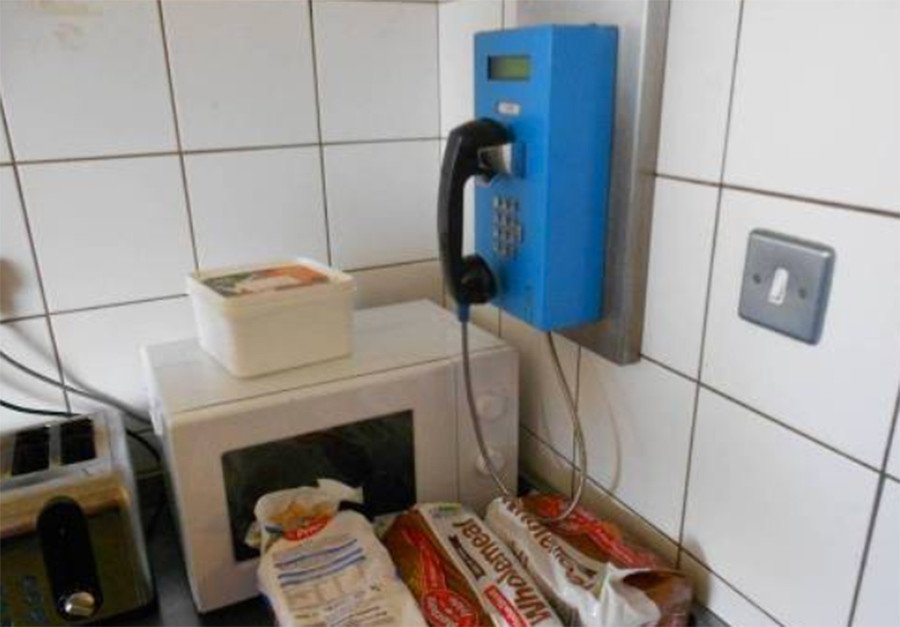
Sacked for speaking out
Spear was sacked from her voluntary IMB chair role last year after she wrote an article in the Prisons Handbook titled “Whistleblower without a whistle,” using the pseudonym Daisy Mallet.
She challenged whether IMBs, which are under the remit of the Ministry of Justice, adequately monitor the treatment of those in custody to ensure it is fair and humane, and whether the boards are truly independent.
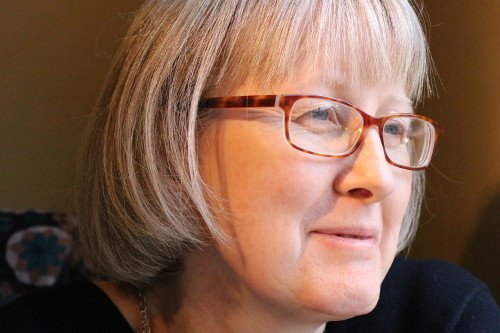
She wrote that prisons are starved of resources, inmates are frustrated with the lack of communication with officers, and that IMBs have been conditioned not to speak out about what they see.
Spear was ultimately unmasked, suspended and sacked by what she believes is a system more interested in its reputation than fixing problems.
“The local IMB board, IMB Secretariat, President of the National Council and National Council itself all decided that I needed to be shut up and shut up quickly. The bullying started, then the intimidation, then the lies, and then the prejudicial character assassination.”
The criminologist “never expected the venom, backlash and dirty tactics” of the IMB and the Ministry of Justice “in trying to destroy me and my reputation and my working life,” she said.
Spear recalled that one Hollesley Bay IMB member had the audacity to tell her it would have helped if she had cried in front of the board while apologising for writing the article.
“I did apologize for any offence caused, as that was not my intention,” she said.
“The issues I raised are as important now as they were a year ago. I haven’t seen enough progress in any of the points I carefully considered and wrote about.
“It’s not right that I was silenced. I went through a lot of pain, a lot of stress how I was treated by the IMB and by the Ministry of Justice, but if I can see as a result of that it brings a change, then it was worth it.”

